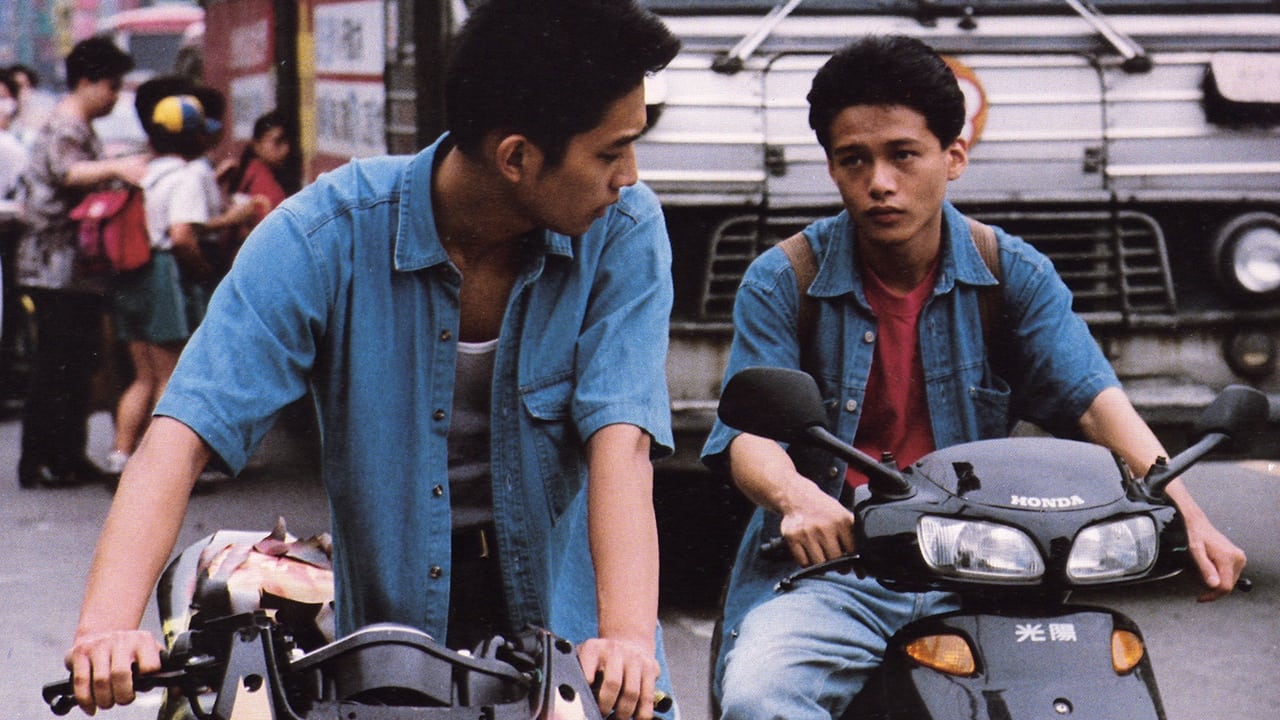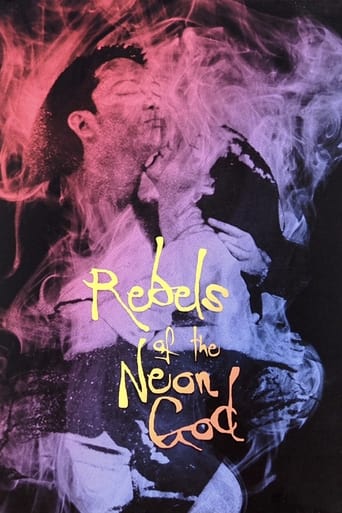

On a more obvious level of multiple layers, a crucial, cultural point of significance seems lost in translation. As Rebels of the neon god comprise the sense of urban alienation, tradition and cultural adaptation, secularization, the decaying city and loss of identity, the original title translates literally Teenage Nezha. And as implied by his frustrated mother, the main character of Hsiao Kang bares resembling "qualities" to that of the rebel god, born into a human family and in constant opposition. While most reincarnations of Nezha grow additional limbs for the purpose of eradicating their father, Hsiao's idle hands become the playground for the prankster god. Sparked by an act of force, the two main plots of the film intertwine, and are further fueled by the returning violence. After their encounter in the arcade, Hsiao can be seen playing the same shoot-em-up as the one Ah Tze played while sitting next to him, symbolizing a change in character and the unraveling of the revenge. The directors returning use of water as ever-present, controlling element of nature, suppressing spaces of confined and human, primal behavior sets up a hierarchy of command in the metropolitan chaos of Taipei.
... View MoreIn his first film, international "arty" director Tsai Ming-liang tells what is apparently, for him, a fairly accessible tale about two fake thugs, the sometimes-girlfriend of one of them, and a younger teenager who has a strange preoccupation with the three of them. He does so largely with long, one-take, unmoving shots (when the action moves into the background, the camera usually doesn't follow). It's not always easy to understand the relationship between these various characters, which is just as well, as it is pretty languid and obscure in general; teasing out the nuances of these relationships was my main source of interest while watching this film. Overall, it seems to be worth a try, but not worth a recommendation. I got a generally positive impression from it (meaning that it didn't just totally irritate me), but it didn't provoke a strong visceral aesthetic appreciation (that's a little paradoxical I guess) that I get from my favorite "art films." I'm tempted to watch one of Tsai's later, "better-known" (relatively speaking) films, but I'm not sure that I'm that enamored with his visual style or his style of storytelling (as opposed to, say, that of Wong Kar-Wai).
... View MoreFrom the beginning of the film we are aware of the conflict between father and son. When the handsome motorcyclist breaks his father's taxi mirror Hsiao Kang (Kang-sheng Lee) is fascinated by him in a love/hate way. His overwhelming mother who conceives of him as a reincarnation of the God Norcha drives him out of the house by her ranting and effects the necessary break with his father. He redeems his school tuition dives into the nightlife of the luminous,illusionary city.. He follows Ah Tze (Chao-jung Chen) and his brother Ah Bing (Chang-bin Jen) in their nightly decadent rounds and plans revenge. When he finally achieves this revenge, by trashing Ah Tze's motorcycle he is not quite satisfied. Ah Tze and his brother are beaten up. They are plunged into misery and despair. Hsiao Kang goes to a brothel but cannot bring himself to meet with a prostitute. The castration resulting from his break with his father is at least temporarily in effect.What is so great about this film is precisely its rich imagery and the fascinating performances. It is mesmeric and moving. In the later films many of the actors/characters will have further more developed existences, but in Rebel of the Neon Gods we are introduced to a trope on the James Dean "Rebel Without a Cause" film in a compelling series of images. A fine, perhaps a great film.
... View MoreYoung disaffected people in Taipeitwo friends steal a lot of coins from telephones and other things. They also play a lot of videogames, and ride motorbikes and drink. One of them lives in an apartment that is always inexplicably flooded. A pretty girl, Ah Kuei (Yu-Wen Wang) takes up with one of them, and there is engagement and disengagement and anomie and sadness, though at the end they don't seem to give up on each other. Another boy drops out of school and follows the crooks, and sabotages a motorcycle, and other such thingshis father drives a taxi, and his mother worries because she's been told he's a reincarnation of the god Norcha. The city itself is incredibly busy, cars and motorcycles and crowds everywhere. There's a lot of rain in this movie, too. It's a melancholy scene
... View More